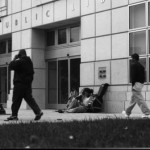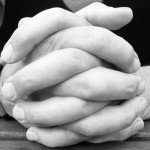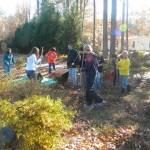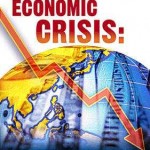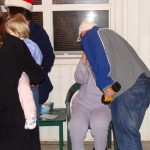Do unto others…
The “Golden Rule”… We know it from Sunday School and Vacation Bible School and flashy posters and flannelgraphs. Oh, and from Scripture. Luke records it this way (as translated by the ESV): “And as you wish that others would do to you, do so to them.” (Luke 6:31 ESV)
But, what does this mean? Is it more than a Christian slogan? Can it really affect the way we live?
Apparently Jesus (and Luke) thought so.
According to Luke, this is the way Jesus defined and explained this statement:
If you love those who love you, what benefit is that to you? For even sinners love those who love them. And if you do good to those who do good to you, what benefit is that to you? For even sinners do the same. And if you lend to those from whom you expect to receive, what credit is that to you? Even sinners lend to sinners, to get back the same amount. But love your enemies, and do good, and lend, expecting nothing in return, and your reward will be great, and you will be sons of the Most High, for he is kind to the ungrateful and the evil. Be merciful, even as your Father is merciful. (Luke 6:32-36 ESV)
You could keep going (and keep reading, if you so desire), but I think that gets the point across. The “Golden Rule” is much, much more than “Be kind to people.”
What do you think?
Through the eyes of the homeless
Have you ever wondered what the homeless (and others in need) think about our theological discussions, arguments about the Bible, and other “churchy” stuff?
Yesterday, I reviewed Under the Overpass by Mike Yankoski. In the book, Mike tells the story of how he and Sam lived as homeless people on the streets of six cities over 5 months. Mike and Sam are both 20-something Christian men. But, in the book, we get a glimpse of what the homeless see of us (even from a Christian perspective).
Here is one excerpt:
Suddenly a young family came into view. The dad – dressed in t-shirt, shorts, and a baseball cap – walked in front, but he was looking down, evidently listening to his wife. She came along behind pushing the stroller. As they rolled up to us, a small boy in the stroller looked out at me.
When you’re sitting on a sidewalk, you’re at eye level with babies and kids… While kids might pretend people who don’t exist do, it’s the parents who pretend that unwanted people who do exist don’t.
I held the boy’s gaze for a while and gave him a smile, which he immediately returned. From high above him, his mother said something that caught my attention. “We have to be about the gift of giving and the wisdom of the Holy Spirit,” she said.
I looked up quickly, wondering what those words might mean, what with us sprawled on the sidewalk not five feet from her. But when I caught her eye, she looked away and quickened her pace.
Now the family was well past us. But the boy in the stroller still looked straight at me… (p. 55-56)
And, here’s another excerpt:
Although Sam and I spent every Sunday morning at a church somewhere on our travels, the lack of community was taking a toll on us. Even at church, we felt isolated because of how we looked, how we smelled, and who people perceived us to be. In fact, walking into a church where we hoped to find genuine fellowship only to be met by condescension or suspicion or disingenuous flattery was the worst kind of rejection. (p. 150-151)
I hope these excerpts (and the entire book if you choose to read it) will spur all of us on to noticing the people around us, and then spending time with the people we see.
“How can I Pray for You?”
Last Thursday, our family and some friends helped out with a local food pantry again. The food pantry provided food for almost 350 families that night.
For the most part, I “roamed” around the big room where everyone was waiting for their turn to get their groceries. I walk talk to the people (usually in groups of 2-4), get to know them, and pray with them.
Alot of people mentioned how difficult it was living in this economy. Whenever someone said that, I asked them, “Do you feel closer to God or farther away from God at times like these?” Most people said closer, but I appreciated a few people who said “farther away” or “a little of both.”
I tried to pray with everyone. A few times, the people’s number was called while I was talking with them. I didn’t want to delay them from getting their food and going home, so I didn’t make them wait for prayer. But, for most people, I asked, “How can I pray for you?” Then, I could look in their eyes as we talked with God about their situations.
Here are some of the responses that I got:
My health.
My husband lost his job yesterday.
My sons are on drugs.
I haven’t worked in two years.
Pray that my cancer doesn’t come back.
My boss keeps cutting my hours.
I have diabetes.
My daughter is in a wheelchair and just got laid off.
I need a job so I can pay child support.
I’m having an MRI tomorrow.
I own my own business, and business is very slow.
I haven’t worked in two years.
It can be draining – physically, emotionally, and spiritually – to talk to so many people who are hurting and in need. I’m glad that Margaret was with me for most of the night.
I know that I can’t solve all of their problems – in fact, I can’t solve any of their problems. But, I can care. I can be there. I can listen. I can pray.
What can you do?
Just a bag of groceries
Tonight, for the second time, my family plans to serve in a local food pantry. The food pantry is actually based out of another church building that meets near us. We’ve been invited to help.
We were all exhausted two weeks ago after helping deliver groceries and talk to people who came to the food pantry. But, the exhaustion was good, because we were doing more than simply delivering a bag of groceries. We were there to show the love of Christ to people who were in need.
Tonight, we’ve invited some friends to join us. We hope that some of them choose to do so.
We know that if more people join us it will be beneficial for the people who come to the food pantry. We’ll be able to talk to more people and pray with more people. More people will hear about God’s love and grace and mercy.
We also know that if more people join us, it will be beneficial for the people who join us. They will also come out exhausted: physically, emotionally, and spiritually drained. But the opportunity to serve others and tell others about the love of God in Jesus Christ is worth it.
If you’re in northern Wake County or southern Franklin County (NC), perhaps you can join us next time.
Taking the Next Step
A couple of weeks ago, I wrote a post called “The Next Step.” In that post, I talked about how important it is for us to talk about service and to encourage one another to serve others. But, I wondered out loud what it would look like – and what it would mean for the church – if we actually took the next step and left to serve others directly from our meeting together.
This is what I called “the next step” – the step away from concept and toward action. The step away from talking about discipleship and service toward actually discipling and serving others. I wrote:
Imagine, we’re sitting together as the church (either around tables or in a circle), and someone expresses a struggle with sharing the gospel with a neighbor. We encourage the person and pray for him or her. Then – the next step – someone offers to go with that brother or sister (perhaps at that very moment) to share the gospel with the neighbor. Or, perhaps someone else offers to take the struggling brother or sister along on a trip to the food pantry when the gospel is often shared.
There are so many possibilities, but it means taking the next step – the step away from concept and toward action.
Well, last Sunday, we started taking that step.
During the month of November, out teaching/discussions on Sundays with the church have focused on the great commandment and the great commission. We’ve primarily exhorted and challenged one another to think about how we can take the community that we share in Christ out to others. We’ve talked about taking our “shared life in Christ” to those who are also in Christ but do not share community with others, and we’ve talked about taking our community to those who are not believers.
Last Sunday, Rodney was planning to lead our teaching/discussion time. He sent an email before Sunday letting everyone know what we would be talking about, so that we could all come prepared. Here is part of his email:
How can we, practically and specifically, help each other to abide in Chirst (and thereby fuel our love for God and our love and service to others in the name of Christ)? To help us be practical and specific… what ways have others helped you grow in your faith, trust, and obedience to Christ? And in what other ways could others help you? (emphasis in original email)
So, when we got together, we did talk about practical and specific way that we could help others and ways that we could be helped. Several people shared opportunities that they’d had in the last couple of weeks to demonstrate the love of God, or times when they’d witnessed and been encouraged by others as they loved and served in the name of Jesus.
Slowly, a few people began making suggestions about how we could specifically serve others. One sister told about an opportunity to spend time in a local hospital. Another sister shared about a family who was having financial problems. A brother shared about his neighbor. A couple of sisters talked about the elderly people they see during the week. The church could serve all of these people in some ways.
Then, a young lady – a teenager actually – spoke up. She had gone with us when we had provided “More Meals” to some of the needy people in our area. She remembered that one of the elderly ladies that we had visited needed her yard raked.
And, this is where we took “the next step.” Margaret, my wife, suggested that whoever was available that afternoon could go to this lady’s house and rake her leaves. Everyone thought this was a great idea! So, we ate lunch together, then several of us (about 14) went to the lady’s and raked the leaves in her yard.
The lady was so surprised and grateful! Margaret and another friend (and our daughters) will continue to see this lady and her husband at least once per week. They will continue to be able to impact their lives with the love of Christ. And, now, because we took the next step, the whole community is involved in this couple’s life!
I’m praying that we continue to take the next step.
Video Interviews Coming
In the next couple of weeks (perhaps as early as next week), I’m going to add a new feature to “The Assembling of the Church”: video interviews. This morning, I recorded the first part of my first interview with my friend Jason White from “Second and Content.” During three or four interviews, Jason is going to tell us about his recent decision to move to South Africa for a year.
My plan is for my interviews with Jason to be the first in a series of video interviews with people that God has brought into my life or used in my life in some way. I’m hoping that their stories and examples of serving others in the name of Jesus Christ will be an encouragement and a challenge for all of us.
I haven’t decided if I’m only going to set up these video interviews as a separate category on this blog, or if I’m going to also publish them as a video podcast. Do you have any suggestions?
Feeding People
A few months ago, we met a couple who organize a food pantry with the help of one of the large churches in our area. This week, we had an opportunity to help as they provided food for over 300 families. They do this every other week.
They are well-organized, with bags of groceries and other items waiting for the people. The people are called one family at a time, and a team of 2-3 people carry their groceries to their car. They get a very personal touch, and the teams are encouraged to talk with the families and pray with them. My family made up two teams who helped walk with people and take their groceries to their vehicles.
While they are waiting for their turn to get groceries, the people wait in a large room. For part of the time we were there, I was asked to roam through the room, talking with and praying with people that I met. I “roamed” in this manner for just over an hour.
During that time, I met, talked with, listened to, and prayed with from 25-30 people… maybe more… I didn’t count. But, easily, there were ten times that many people there that I did not have time to talk to.
I think my new friends have a great ministry and a great opportunity to impact people’s lives with food (physical and spiritual). I’m hoping to enlist some of my friends to come back next time and “roam” through the crowds with me.
And sees his brother in need…
Frank at “Reimagining Church” makes an impassioned plea for “Helping the Family in this Economy: A Great Need.” He reminds us of how the early church helped one another during times of financial (or other) crisis. (Remember the great famine? Acts11:28-30)
Frank says:
In my country (the USA), we are facing an economic crisis. While the world looks to and waits for the government to solve our financial problems, I know many believers who are out of work. Some are struggling to put food on their tables each day.
Thankfully, the Lord has financially blessed some in the body of Christ today, and they are prospering despite the economic downturn…
All told: it’s on my heart today to say the following to every disciple of Jesus: If you are doing well financially, may I encourage you to seek the Lord regarding helping those who are hurting right now, especially those who part of the household of faith — your fellow sisters and brothers in Christ, members of the family of God?
Frank’s plea and exhortation reminds me of what John wrote:
But if anyone has the world’s goods and sees his brother in need, yet closes his heart against him, how does God’s love abide in him? Little children, let us not love in word or talk but in deed and in truth. (1 John 3:17-18 ESV)
I echo Frank’s challenge. Please consider giving to those who are struggling during this economic downturn (especially to your brothers and sisters). If you do not know of individuals or families that you can help, pray and keep your eyes open. If you still don’t know of anyone, let me know. I can point you in the direction of several hurting families.
Can you imagine the impact…
I’ve been outside the United States a few times. Twice, I went specifically to serve people in the name of Jesus – once to Nicaragua and once to Ethiopia. In each instance, the time spent serving people from another country/culture changed me as much as it changed the people there. In many ways, during those times, I was forced to take my thoughts off of myself and my “things,” and put those thoughts towards other people.
Now, Dave Black (November 11, 2010 at 7:26 a.m.) has written an exhortation that I cannot ignore. I hope, as you read it, that you cannot ignore it either. We must ask ourselves what we’re doing… really doing… in the name of Jesus, and what we’re doing in our own name. Are we completely giving of ourselves, or are we holding part back so that we can maintain our stuff?
Here is the quote:
I had been hearing about missionaries all of my life. And now I’m the GIF, the Guy In Africa, that eccentric person who can’t feel comfortable among opulence any more, who stays up half the night thinking about a sick child in Alaba or a suffering woman in Burji or a persecuted evangelist in Gondar. I don’t ever want to lose this feeling, this marveling at the world, this attraction to a country called Black-Faced (Ethiopia) filled with outcasts and dying people and babies suffering from malaria and women needing fistula surgery, this nation of 80 million people worshiping their trees or their saints or their false gods. I never want to forget how incredibly small you feel when you’re trying to bring medical supplies through customs or watching the heart-wrenching poverty or scooping up a half-naked infant or standing next to the graves of missionaries from past generations who went out to the field and never came back home (or was it ever “home” for them again?). Can you imagine what would happen if Christians in America were to grasp the principle of sharing what they have to meet the needs of the Gospel around the world? Can you imagine what the impact would be if we stopped spending 95 percent of our church budgets on ourselves? Can you imagine the change it would make if we lived a lifestyle that matched our responsibility to a lost and dying world? Seven years ago my lifestyle was up from grabs. Every thought and every action was tested by the simple teachings of Scripture. I decided, along with Becky, that I would lay up no treasure for myself on this earth. Suddenly I was free — free from my bondage to material things, free to allow God to use me — a nobody — to be His hands and feet and arms in Africa.
I can imagine the impact. I can imagine the change. I’ve seen a small sample personally, and I’ve read about it in the New Testament.
The question is… now that we can imagine it… are we willing to live it? What is preventing us (me and you) from living it?
Naming the Marginalized
This post is part of a synchroblog on the subject “Seeing Through the Eyes of the Marginalized.” It’s been a long time since I’ve taken part in a synchroblog, but I’m excited to get back to it, especially given this topic.
First, what does it mean to be marginalized? Here are a couple of definitions to get started:
1) Marginalization is the social process of becoming or being made marginal (to relegate or confine to a lower social standing or outer limit or edge, as of social standing).
2) Marginalization – often used in an economic or political sense to refer to the rendering of an individual, an ethnic or national group, or a nation-state powerless by a more powerful individual, ethnic or national group, or nation-state.
We all know the groups that are marginalized. Sometimes, the groups change from region to region, and from culture to culture. But, in my area, there are many different groups of people who are marginalized by society.
So, I began to ask myself, “How can I see through the eyes of the marginalized?” I realized right away that it was impossible for two reasons. 1) As long as I am not marginalized myself, I will never truly see through their eyes. And 2) “the marginalized” is a nameless, faceless, amorphous group that does not have eyes.
If I want to begin to see through their eyes – to begin to understand the marginalized – then I muse begin by getting to know them, by getting to know their names, and by listening to their stories. Once individuals replace the label “the marginalized,” I can begin to understand them.
You see, it’s one thing to care for “the sick,” but it’s something completely different to care for Tina. It’s one thing to care for “the homeless,” but it’s something completely different to care for Charvin. It’s one thing to care for “the widows,” but it’s something completely different to care for Peggy. It’s one thing to care for “single mothers,” but it’s something completely different to care for Shonna.
We can say that we care for “the marginalized,” but never get to the point where we actually no someone who is marginalized. We can even give money to help “the marginalized,” but in fact, we’re actually paying someone else to care for individuals for us. And, unfortunately, from experience, I know that often that money does not actually help individuals, because they are often treated as a group. (Don’t get me wrong. I’m not saying that we should give money to help groups. I’m saying that we shouldn’t stop there.)
It is only when we get to know the person, to hear their story, to learn about their struggles and pain and hopes and fears… it is only at that point that we will know who to love them and serve them. We love and serve people when we are no longer caring for “the marginalized,” but we are caring for Benny, Belle, May, Creston, Cathy, and Jimmy.
If you want to begin to see through the eyes of the marginalized – to truly understand their life and their plight – then begin by getting to know their individual names, and listening to their individual stories.
———————————————
There are other bloggers posting on the subject of “seeing through the eyes of the marginalized.” Links to their posts are below. I’ll add more as they come in:
- George at the Love Revolution – The Hierarchy of Dirt
- Arthur Stewart – The Bank
- Sonnie Swenston – Seeing through the Eyes of the Marginalized
- Wendy McCaig – An Empty Chair at the Debate
- Ellen Haroutunian – Reading the Bible from the Margins
- Christine Sine – Seeing through the Eyes of the Marginalized
- Alan Knox – Naming the Marginalized
- Margaret Boehlman – Just Out of Sight
- Liz Dyer – Step Away from the Keyhole
- John O’Keefe – Viewing the World in Different Ways
- Steve Hayes – Ministry to Refugees–Synchroblog on Marginalised People
- Kathy Escobar – sitting at the rickety-card-table-in-the-family room at thanksgiving dinner


